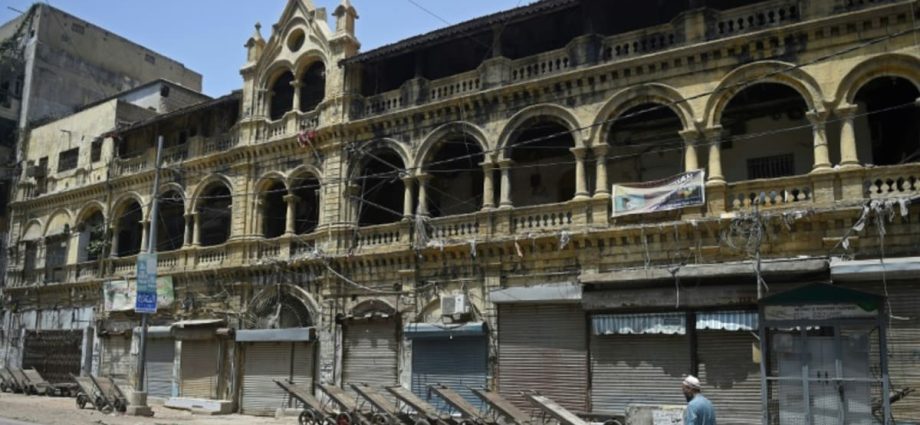
“GROWING DISCONNECT”
On Friday, caretaker Prime Minister Anwaar-ul-Haq Kakar said citizens would have to pay inflated bills as there is no “second option”.
“When you subsidise, you shift your fiscal obligations to the future. Rather than addressing the issue, you just delay it,” he told reporters in Islamabad.
The government raised petrol prices past the threshold of 300 rupees (US$1) per litre for the first time this week.
That exchange rate against the dollar is the lowest in the nation’s 76-year history.
Meanwhile, fresh data showed year-on-year inflation in August stood at 27.4 per cent, with motor fuel bills up eight per cent in July.
“The bills we have received this month exceed our earnings,” said Babar Mahmood, president of the Electronics Market Traders Union in Lahore.
“There is a growing disconnect between the general public and those in positions of power.”
A caretaker government has been ruling Pakistan since parliament was dissolved last month, charged with ushering in elections, although no date has yet been announced.
The interim leadership, and the terms of the IMF deal, were hashed out by previous prime minister Shehbaz Sharif at the head of a shaky coalition that battled to turn around the economy in its short tenure after ousting Imran Khan in 2022.
Khan, Pakistan’s most popular politician, is in prison battling a slew of legal cases he says are intended to keep him from contesting the polls.
Meanwhile, the nation also faces a worsening security situation with nine soldiers killed in a suicide attack on Thursday.

